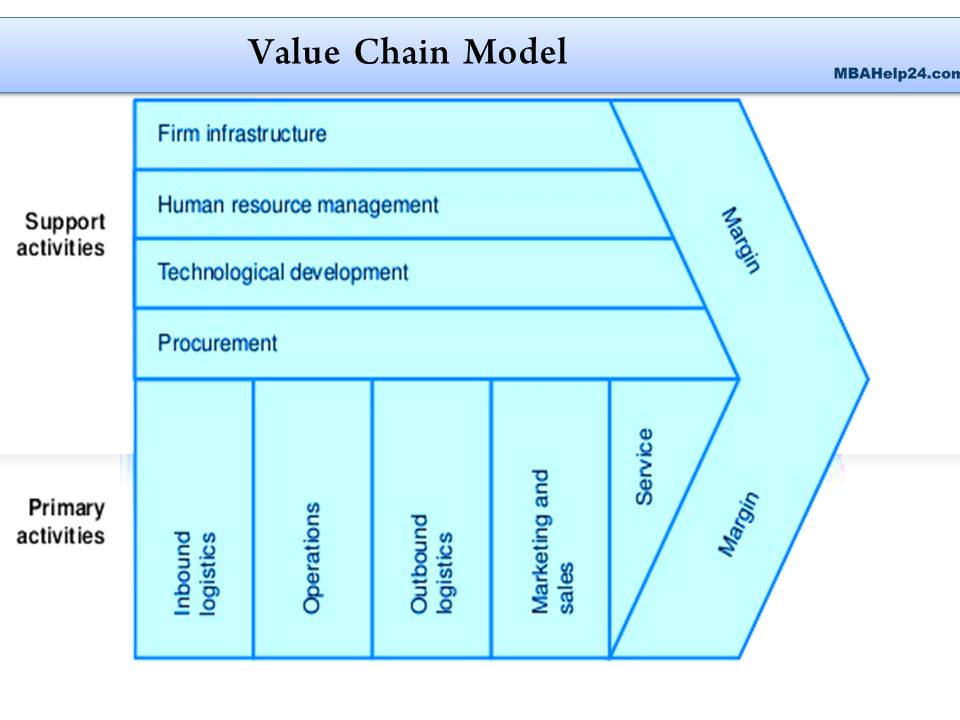The Value Chain analytical tool enables all organizations to be able to successively examine their actions to discover in addition to strengthen the less efficient sections in an effort to maximize Competitive Advantage.
The concept of the value chain developed by Michael Porter appeared in 1985 in his publication “Competitive Advantage: Creating and Sustaining Superior Performance.”
Features
- The value chain is actually a business enterprise management method in which finds the generation of value within a firm.
- This specific analytical tool enables all organizations to be able to successively examine their actions to discover in addition to strengthen the less efficient sections in an effort to maximize competitive advantage.
The value chain separates the organization into 9 activities, belonging to two categories: 5 primary activities and 4 support activities.

The value chain analysis normally takes place in phases such as:
1. Discovering the area to examine,
2. Drawing the value chain,
3.Collection and validation of information and facts,
4. Reorganization of the chain and action planning.
Strategy’s Three Key Challenges ?
Beyond Formulation: Results-oriented Strategy Leadership?
Strategic Planning: Overview, Significance & Outcomes
The Strategic Planning Process: A Fundamental View
Vision, Mission, Value & Objective Statements: What & What Not?
Positive aspects
This particular tool has several positive aspects:
- It is flexible to all different kinds of organizations;
- It enhances competitiveness;
- It provides well-defined and effectively outlined actions to successfully carry out the chain analysis.
On the other hand, the evaluation is a lengthy approach. It involves a substantial amount of data. In addition, personal interpretation performs an essential role, which may help to make the model significantly less accurate.
PESTLE Analysis of the Macro-environment: Definition & Purpose
PESTLE Analysis: 6 Core Variables
SWOT Analysis: Definition & Primary Advantages
The value chain is consistent with some other similarly significant models in business Management, such as the well-known model known as ‘Porter’s Five Forces’,
The value chain is a highly effective tool, however is required to be used in combination with careful attention.
To get results, it is recommended to understand or know that each evaluation differs from one organization to another.
Strengthening the value chain consists of complex decisions which, when done effectively, make it possible for organizations to achieve their goals and objectives.
Competitive Advantage: Cost Advantage & Differentiation
A Model of Competitive Advantage
Five Forces Model: Summary, Significance & Framework
Using The Five Forces Model In Industry Analysis
Generic Strategies: Concept, Framework, Performance & Risk
http://www.mbahelp24.com/the-value-chain-features-phases-merits-limitations/


































































































